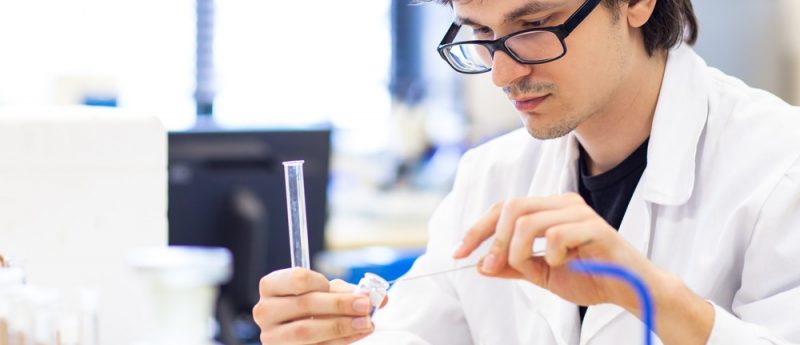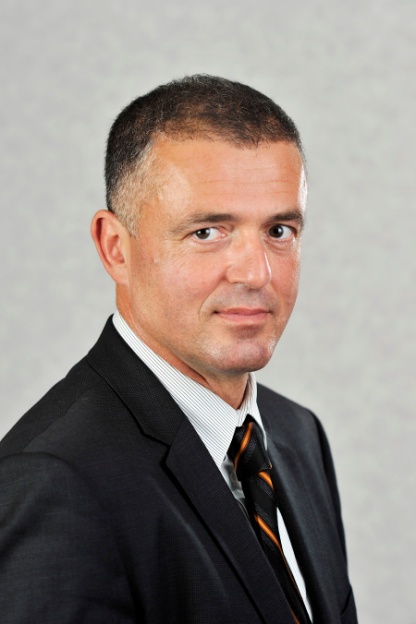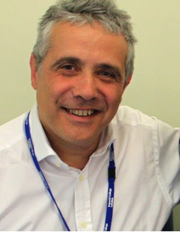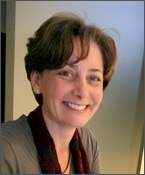How King’s College London is producing the next generation of cell therapy leaders

In this interview, Dusko Ilic and Francesco Dazzi from King’s College London (London, UK) are joined by Cathy Prescott, Founder Director of Biolatris Ltd (Cambridge, UK), to discuss their current research and a new course designed to help young scientists bring cellular therapies from bench to market.
In this interview, Dusko Ilic, Reader at King’s College London (London, UK) and RegMedNet Leader, discusses his current research into using induced pluripotent stem cells (iPSCs) and mesenchymal stem cells (MSCs) to develop skin models for drug discovery. He is joined by Francesco Dazzi, Head of Cellular Therapy at King’s Health Partners and Cathy Prescott, Founder Director of Biolatris Ltd (Cambridge, UK), to explain more about a new MSc program at King’s College London designed to help young scientists bring cellular therapies from bench to market.

Dusko Ilic
Dr Dusko Ilic obtained his MD degree and BSci in Molecular Biology at the University of Belgrade (Belgrade, Serbia), PhD at the Tokyo University (Tokyo, Japan), and postdoctoral training at the University of California (CA, USA). He is currently a Reader at King’s College London, and his research interests include hESC, iPSCs, MSCs and 3D skin models for drug discovery and regenerative medicine.

Francesco Dazzi
Professor Dazzi trained as a hemato-oncologist and obtained a PhD in Experimental Oncology. In 1996 he moved to the Royal Postgraduate Medical School (now Imperial College) and in 2007 he was appointed as Chair of Stem Cell Biology. More recently, based on his discovery that mesenchymal stromal cells exhibit immunomodulatory activities, he developed a nationwide clinical program for the use of these cells to control unwanted immune responses in transplantation. He recently joined King’s College London as Professor of Regenerative Medicine and Lead of Cellular Therapies at KCL.

Cathy Prescott
As Founder Director of Biolatris Ltd. (Cambridge, UK), Cathy has more than 20 years’ experience in research, management and business in the life science and venture capital sectors. Over this time she has developed an extensive network of national and international contacts in the public, private and academic sectors and has become an acknowledged opinion leader in the stem cell and regenerative medicine sectors. She is a Visiting Professor at King’s College London (London, UK), has authored multiple peer-reviewed publications and is co-editor of the book ‘The Delivery of Regenerative Medicines and Impact on Healthcare’ (CRC Press).
Can you introduce yourself and your institution?
Dusko Ilic (DI): King’s is the academic arm of King’s Health Partners, one of the six nationally accredited UK Academic Health Sciences Centers, where patients benefit from world-class research, education and clinical practice. King’s, one of the top 20 Universities in the world, with an annual income of over £600 million has a strong history of stem cell research within a framework of the highest ethical standards of conduct by the UK regulatory bodies, fostering translational research and drug discovery.
Before joining King’s, I worked in Silicon Valley for a small start-up company with a focus on hESCs. Lack of regulatory framework in the USA, laws that differ from a state to state and unsupportive political climate made survival of the company challenging. At the same time, the UK was building critical mass in the public research system and opening new technology transfer models. The UK seemed the place to be and with its translational aspects, King’s was a leading academic institution. Obviously, I could not resist the challenge and I joined King’s in 2009.
Francesco Dazzi (FD): I have been working in the biology and clinical applications of cellular therapies for the last 20 years. I started at Imperial College (London, UK) where I initiated a program based on the use of donor lymphocytes to treat patients with leukemia that soon became one of the largest in the world.
Since the beneficial effects were associated with life threatening complications (graft-versus-host disease, GvHD), I started studying the immunobiology of mesenchymal stromal cells and discovered that they are potently immunosuppressive. As a consequence, the next step was to test their clinical efficacy in severe GvHD and the initial successes were followed by building a manufacturing process that now makes available MSCs to the UK and feed a nationwide clinical program.
About three years ago, I was offered the possibility to lead cellular therapies at King’s, an opportunity that was impossible to refuse, considering the many initiatives that are currently undergoing, including the one run by my colleague Dusko.
Cathy Prescott (CP): I trained as a scientist and have worked in academia, the pharmaceutical and biotechnology industries and as a venture capitalist. However, for the past decade I have been working at Biolatris Ltd., an independent life-sciences consultancy. During this time I have served many clients with intellectual property relating to the stem cell and regenerative medicine sectors. Clients often require a better understanding of the potential value of their innovation and how such value might be leveraged. Therefore, I help clients to grow their business potential by providing consultancy services ranging from technical due diligence to market analysis and business development. Formerly I served as chair of the UK National Stem Cell Network Advisory committee and Director of the East of England Stem Cell Network.
I am also a Non-Executive Director to Videregen Ltd (Liverpool, UK), chair of the TrakCel Ltd (Cardiff, UK) Advisory Board, a member of the Stemmatters (Barco GMR, Portugal) Advisory Board and a member of the Translational Advisory Group at the Babraham Institute (Cambridge, UK).
Can you tell me a little bit about a current project you are working on?
DI: My long-term interest is in translational aspects of stem cell research. Since I joined King’s College, my team has derived multiple clinical and research grade hESC and iPSC lines as well as developed protocols for derivation and propagation of MSCs from umbilical cord.
We recently developed protocols for engineering in vitro human epidermal equivalents from both hESC and iPSC, with all cellular strata and apparently normal barrier properties, as seen in the intact human epidermis. The work received a lot of attention from media and industry. My goal is to continue working on engineering more complex skin models from hESC and iPSC as well as utilize hESC, iPSC and MSC in to address in translational research.
Why are you working in this area?
DI: I always liked solving puzzles, and stem cells and development are one of the nature’s the most fascinating puzzles.
What are some challenges that you have faced, and how did you overcome them?
DI: Replacement of animals and animal-based products in research became a focus of my work in the last several years. Multiple well-established laboratory animal-based systems have been used in drug development and toxicology testing. In spite of the importance of such studies, they are conducted in less than ideal systems and the conclusions based on animal testing remain problematic due to numerous species-species differences.
The fact that both hESC and iPSC can grow in vitro indefinitely, while retaining their capability to differentiate into specialized somatic cell types, makes them an ideal tool for toxicology and drug screening. Their use is bound to reduce the number of animals needed in drug development and toxicology as well as the complexity and costs associated with animal experiments.
I have spent considerable time optimizing the cell culture conditions and it took my team almost 10 years to develop protocols for derivation and propagation of clinical grade hESCs in animal product-free environment. Animal product free experimental settings became of a paramount importance for any work done in my laboratory.
What do you hope to discover in the future? What are some future applications of this project?
DI: Since March 2013, the European Union banned the import and sale of cosmetics containing ingredients tested on animals, increasing the demand for efficient and cost-effective alternative in vitro models that would not compromise consumer safety. Full thickness skin models with a functional permeability barrier generated completely in vitro from either hESCs or iPSCs, that I am working on, might present the best available answer
What prompted you to start the MSc Cellular Therapy from Bench to Market program?
DI: By going back to academia, I have seen my role in engaging the intellectual talent of young generations in new research opportunities. I wanted to convey my knowledge and experience from working in both academia and industry to the students, enabling them to find their way between two very different working environments.
Meeting Francesco and Cathy was a turning point. They were fully aware that biomedical science and medical graduates are not conversant of the needs of industry, especially in the fields of stem cells and cellular therapy. The complexity of issues relating to cell manufacturing, the underlying regulatory framework, reimbursement and viable business models, each represent challenges that profoundly undermine the timing and the delivery of a viable healthcare model. Therefore, there was an urgent need for an educational initiative to provide tools that aid the understanding of these complex issues within an integrated and commercial context.
FD: In all honesty, starting a MSc in cellular therapies was in my personal statement when I was formally interviewed at KCL. In hindsight, it was too much of an ambitious proposal because of the many aspects that must be included. However, I was lucky to meet Dusko at the very beginning who, with his knowledge and network, actually translated a general idea into a coordinated and exciting education program.
During the development of the course, the involvement of Cathy added the business perspective thus putting the MSc on a league of its own. The three of us are so different and complementary that we all bring our different knowledge and vision to build a program which we believe is really unique.
CP: When Dusko and Francesco originally proposed the idea that I might join them in establishing the Masters program I did not hesitate to accept. This is one of the most exciting but complex and challenging industry sectors. The MSc program provides a unique opportunity to help educate scientists about the different aspects required to build and run a successful business in the cellular therapies sector. During the program the students also get the opportunity to meet with experts working in the industry to gain an understanding of their own unique experience.
Why is it important that researchers understand the commercial side of the cell therapy pipeline?
DI: Cellular therapies have attracted much interest in recent years in virtually all disciplines of medicine with over 2,700 clinical trials enrolled between 2000 and 2010. As of today, clinicaltrials.gov has over 35,000 registered cellular therapy clinical trials. Understanding the logistics of translating scientific advancements from bench to market is the vital precursor to enable the social and commercial benefits of emergent technologies
FD: I am actively involved in delivering cellular therapies for patients and I know for personal experience the hurdles that this involves. Obviously, the choice of delivering a cellular therapy must first be based on evidence of efficacy. However, a highly efficacious treatment may not be necessarily justified because costs can be too high. Understanding how the business model affects the feasibility of a therapy is fundamental for a scientist, a doctor and an investor. Our MSc puts all the components into the equation.
CP: The ultimate aim of a successful cellular therapy business is to deliver a therapy to patients as and when is required and to generate a profit. This requires an understanding of the unmet medical need [market], a team with the experience and expertise to develop a safe and effective product [eg scientific, clinical, regulatory], and a business that can manufacture and supply an affordable product that a provider is willing to use it and an insurer willing to pay for it. Such a business requires significant levels of funding and therefore must have the potential to generate a profit and have a risk profile that is attractive to investors. The MSc program covers all these aspects, enabling students to have a broad understanding of what is required to create a successful business.
What aspects of the course are you excited about?
DI: No other MSc program provides the comprehensive and applied training in cellular therapy with a particular emphasis on commercial aspects. This is a unique initiative because the topics not only encompass the basic and translational scientific aspects in stem cells and regenerative medicine but also expand on regulatory and commercial pathways in cellular therapies.
[This course] is a unique combination of technical scientific skill with business and commercialization understanding, and excellent real-world exposure…several key thought leaders in the field. This offers students..excellent personal development experiences [and] an ideal springboard for shaping a professional identity and beginning to build a professional network.
FD: For us this is the first holistic approach to cellular therapies. By covering all aspects we believe this MSc can provide a unique educational program that can form the next generation of cellular therapists, from scientists and regulators to physicians and investors
CP: Having an MSc program dedicated to providing an understanding of what is involved in taking cellular therapies from the bench to the market is incredibly exciting and unique. It exposes students to the vast array of challenging and opportunities that exist within this rapidly evolving industry and in doing so, the range of potential career options.
Where are the course graduates now?
DI: Oliver Ball is a recent graduate of this course. Oliver is currently self-employed, offering London-based consultancy to clients working in the cell and gene therapy space. He intends to pursue PhD options over the coming year, continuing his focus on cell and gene commercialization. He also sits on the organizing committee of the TERMIS-EU Business Plan Competition.
Oliver Ball: I have a great deal of enthusiasm to express for post-course career opportunities. This Master’s degree is unique for two key reasons, each of which confer excellent opportunities to graduates. The first is the unique combination of technical scientific skill with business and commercialization understanding (including associated issues such as regulatory, business strategy, legal, IP and more). As the industry advances and matures this unique combination of skills is in increasing demand; there is certainly awareness within industry of the need for this particular skill set.
Secondly, the course offers excellent real-world exposure through meeting opportunities with several key thought leaders in the field. This not only offers students the chance for some excellent personal development experiences but provides an ideal springboard for shaping a professional identity and beginning to build a professional network. At a time of strong industry growth and rapid technological innovation, this course is positioned perfectly to equip ambitious young students with the skills to forge long and successful careers in the cell and gene therapy space.
Acknowledgements/Disclosure
- Dusko Ilic, Francesco Dazzi and Cathy Prescott are the program organizers.
Further reading
- Cellular Therapy from Bench to Market MSc, King’s College London.